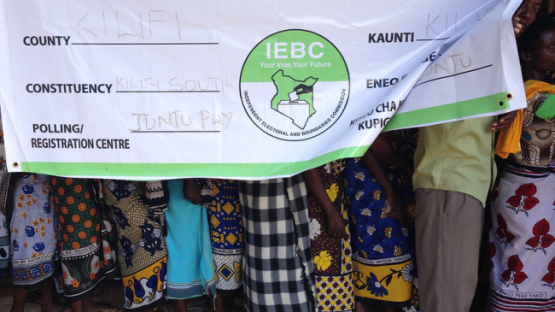
Dan Spealman, Aga Khan Foundation
Everyone has the right to take part in their country’s political affairs and equal access to public service. Governments should be voted for regularly.

Dan Spealman, Aga Khan Foundation
The run up to Kenya’s 2017 elections was extremely tense. Kenya has a history of violently fought elections and there was fear this election would be no different. It was in this tense environment, that companies like Cambridge Analytica and Harris Media – and their digital offerings - got involved in the election campaigns.
Cambridge Analytica’s business model is by now familiar, they compiled a huge amount of data points, often through illegal means, to create profiles on individuals – including their interests, personalities, and emotions – in order to gain greater insights and better target them with content and ultimately seek to change the way that people behave. Cambridge Analytica was part of the industrial sector that continues to exploit our data. Neither has it disappeared completely, for example, the company Emerdata was formed, with many of the same players.
Targeted advertising took on a disturbing role in the Kenyan election when Harris Media LLC, a far-right American digital media company, created a virulent attack campaign against his opponent Raila Odinga, called “The Real Raila”. The campaign linked to a website containing and republishing lightly-sourced characterisations of Odinga as a dangerous, racist xenophobe with promoting his tribe and family as his primary political aim. Ads from this campaign, as well as a website showcasing President Uhuru Kenyatta’s accomplishments, flooded Twitter, Facebook, and Youtube accounts across the country, and dominated google searches.
Ultimately, the election was close. Kenyatta won the initial count, but his win was nullified by the Supreme Court, who argued that irregularities had affected the integrity of the poll. Odinga withdrew from the second election, arguing that no safeguards had been put in place to secure the election. In the meantime, between the first and second election, 25 people were killed according to the Kenya National commission on human rights and over 100 people were injured, according to Human Rights Watch.
Particularly in countries where there is history of political violence, campaigning based on intensive collection of personal data is untested ground fraught with great risk. Our democratic institutions are under threat today and the groundwork is being set to destabilise them into the future. Private, political, and state actors are creating an environment that is rife for the manipulation of democratic outcomes, and the loss of confidence in democratic institutions and processes.
Even without disturbing content, the move towards collecting vast amounts of data in order to help sway elections threatens the right to take part in free elections. When elections are tightly fought, the use of privacy invasive techniques that may sway even a small number of voters matter. Privacy plays a key role in keeping elections free and democratic.
1. Everyone has the right to take part in the government of his country, directly or through freely chosen representatives. 2. Everyone has the right of equal access to public service in his country. 3. The will of the people shall be the basis of the authority of government; this will shall be expressed in periodic and genuine elections which shall be by universal and equal suffrage and shall be held by secrete vote or by equivalent free voting procedures. Article 21, Right to partake in public affairs